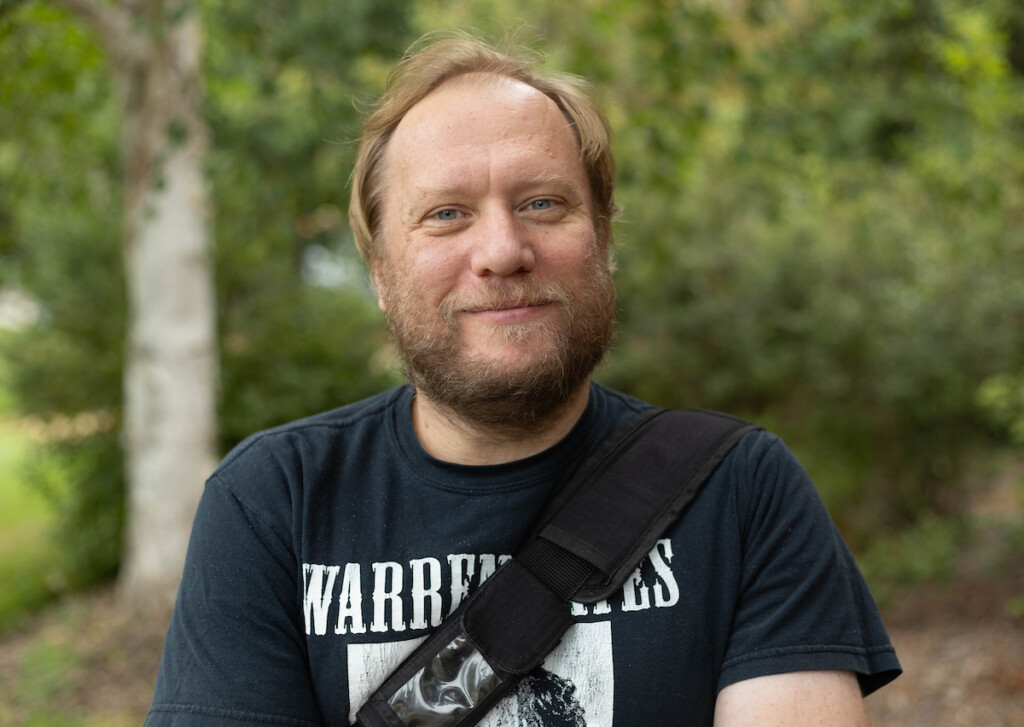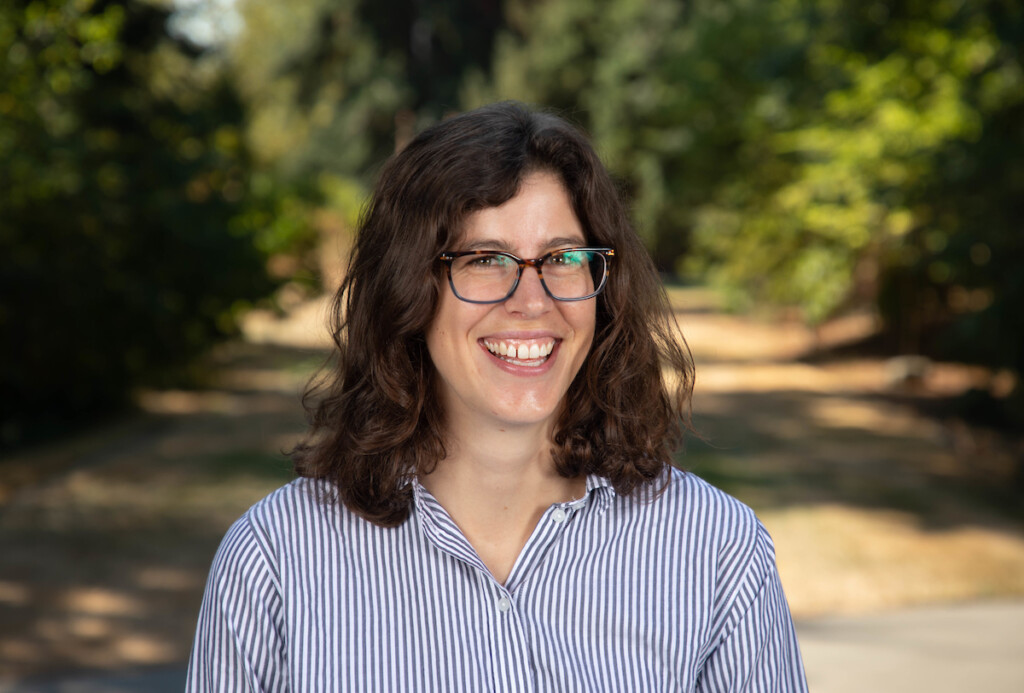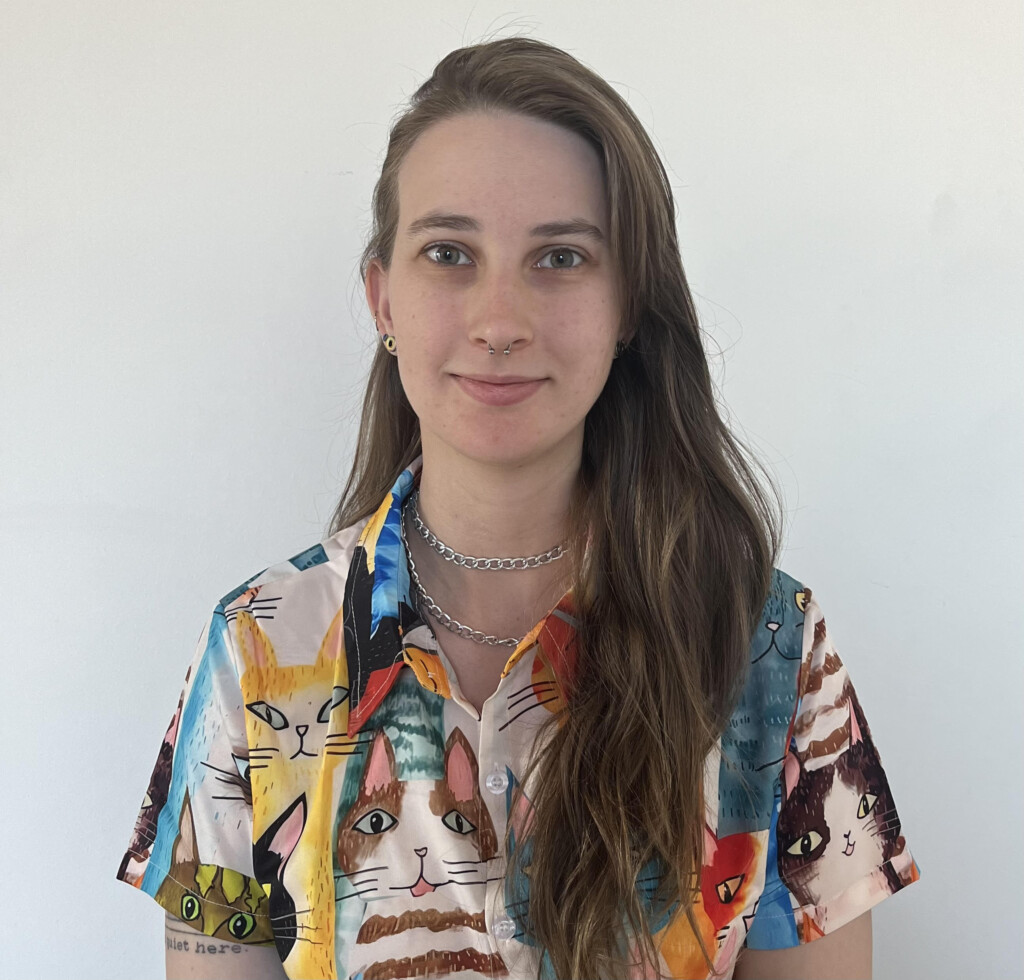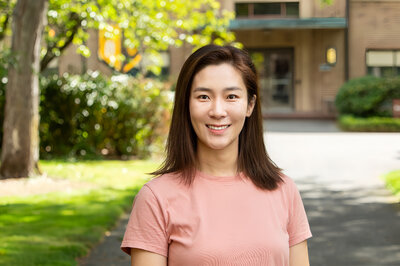Page 10 • (312 results in 0.022 seconds)
-
The Education Committee of the Puget Sound American Chemical Society will be accepting applications for the Julia A. Rutherford Memorial Scholarship. Two $1500 scholarships will be awarded students currently enrolled in a 4-year college/university who has completed or is currently enrolled in organic chemistry I.…
Julia A. Rutherford Memorial Scholarship Posted by: nicolacs / January 31, 2022 January 31, 2022 The Education Committee of the Puget Sound American Chemical Society will be accepting applications for the Julia A. Rutherford Memorial Scholarship. Two $1500 scholarships will be awarded students currently enrolled in a 4-year college/university who has completed or is currently enrolled in organic chemistry I. The eligibility details and contact info can be found here. The deadline is March 1
-
News articles and blog posts from Pacific Lutheran University.
Back in the lab: an unexpected path led Angela Rodriguez Hinojosa ’24 to organic chemistry “It’s like clicking Legos together,” she says. Except that the Legos are chemical compounds contained in an 1 H NMR tube. Chemistry major Angela Rodriguez Hinojosa ’24 lights up when talking about her role in the Murdock Trust-funded research on RNA detection . A collaboration… March 7, 2024 Chemistry
-
The Molecules Meet Materials (M3) Research Experiences for Undergraduates (REU) site at the University of South Dakota, located in Vermillion, SD, supports the training of 10 students for 10 weeks during the summers of 2022-2024. In this program, funded by the National Science Foundation Division…
site broadens participation in STEM. In collaboration with their peers and faculty mentors, the undergraduate students undertake individual projects including core-shell plasmonic nanoparticles for applications in anti-counterfeiting, metal-organic supercontainers for biomass conversion, computational methods to improve f-block element separations, organic semiconductor materials from perfluoroalkylated aromatic molecules, nanoparticles with tailored surfaces for specific cellular surface targets
-

Visiting Assistant Professor of Chemistry | Department of Chemistry | vsmirnov@plu.edu | 253.535.7940
Valeriy Smirnov, Ph.D. Visiting Assistant Professor of Chemistry Phone: 253.535.7940 Email: vsmirnov@plu.edu Office Location: Rieke Science Center - 244 Office Hours: (On Campus) Mon: 12:00 pm - 1:00 pm (On Campus) Wed: 1:00 pm - 3:00 pm (On Campus) Thu: 10:00 am - 12:00 pm (On Campus) Fri: 12:00 pm - 1:00 pm (On Campus) Mon - Fri: By Appointment Curriculum Vitae: View my CV Professional Education Ph.D., Organic Chemistry, University of Nebraska-Lincoln, 2004
Office HoursMon: 12:00 pm - 1:00 pmWed: 1:00 pm - 3:00 pmThu: 10:00 am - 12:00 pmFri: 12:00 pm - 1:00 pmMon - Fri: - -
(choose one) • Sweet Potato and Quinoa Hash with Wilted Kale • Beecher’s® Flagship Cheddar Grits • Home Fried Potatoes • Roasted Herb Yukon Gold Potatoes
peopleSliced baguettes, petite Croissants, brie cheese, raspberry jam, fresh strawberries and butter ballsScones$7.00 per person | minimum 12 peopleOur famous house made maple & blueberry cream scones, butter and organic raspberry jamEnergy!$6.50 per person | minimum 12 peopleAssortment of seasonal whole fruit with Kind® bars and Lara® bars. Check Out the Breakfast Side & Bakery Additions Breakfast Buffets Breakfast Buffets The breakfast buffets listed below include: • sliced fresh fruit display • your
-
Growing season begins at community garden On Sunday, April 20, the grand opening of the PLU Community Garden’s permanent site officially kicked off Earth Week. Located on 121st Street South behind Ingram Hall, the 10,000-square-foot site is much larger than the garden’s previous a 150-square-foot…
(planting) from a farmer’s perspective.” Formed in 2000 by the Emergency Food Network, Mother Earth Farm is an eight-acre organic farm that produces more than 150,000 pounds of fresh fruit and vegetables each growing season. All the produce is distributed directly to local food banks and hot meal programs. Through service learning projects and the student environmental club GREAN, PLU students have volunteered at the farm. Working there is as much an educational experience as it is manual labor, Mares
-

Assistant Professor of Chemistry | Department of Chemistry | aboysen@plu.edu | 253-535-7596 | Dr.
Emphasis or Expertise Analytical Chemistry Organic Geochemistry Mass Spectrometry Based 'Omics Microbial Oceanography Selected Presentations 2022 Marine Microbes Gordon Research Seminar and Gordon Research Conference, Multiple choice: the metabolic consequences of nitrogen source switching in Synechococcus, Les Diablerets, Switzerland (May 28 - June 3) 2022 Ocean Sciences Meeting, Dissolved organic nitrogen uptake and use by natural microbial communities and model picocyanobacteria, Virtual (February
Office HoursMon: 10:00 am - 11:00 amTue: 12:30 pm - 1:30 pmWed: 10:30 am - 11:00 amWed: -Fri: 9:00 am - 10:00 amArea of Emphasis/Expertise -

Assistant Professor | Department of Computer Science | alexandra.bacula@plu.edu | 253-535-7523 | I am a former ballet dancer turned roboticist who is passionate about the intersection of arts and technology and exploring how each practice can inform the other.
, Timing, and Spacing."." International Journal of Social Robotics Vol. 14 (9),, November, 2022: pp. 1965-1993. Bacula, Alexandra, Amy LaViers.. " "Character Synthesis of Ballet Archetypes on Robots Using Laban Movement Analysis: Comparison Between a Humanoid and an Aerial Robot Platform with Lay and Expert Observation"." International Journal of Social Robotics Vol. 13, 2020: pp. 10471062.. Biography I am a former ballet dancer turned roboticist who is passionate about the intersection of arts and
Office HoursMon: 9:30 am - 11:30 amWed: 10:00 am - 11:20 amWed: 3:30 pm - 4:50 pmFri: 10:30 am - 11:50 amTue: 12:00 pm - 2:00 pm -
A summer fellowship opportunity is available in the Division of Laboratory Sciences (DLS) within the National Center for Environmental Health (NCEH) at the Centers for Disease Control and Prevention (CDC) on the Chamblee Campus in Atlanta, Georgia. DLS provides laboratory support that improves the detection, diagnosis,…
to public health. The application deadline is Friday, January 19, 2018 at 3:00 PM EST. If you have questions, send an email to CDCrpp@orau.org. Please include reference code CDC-NCEH-2018-0013 in your email. View the job online and apply at: https://www.zintellect.com/Posting/details/3727 Read Previous Nuclear Engineering Science Laboratory Synthesis Programs at ORNL- Spring or Summer 2018 Read Next 2018 SCI Scholars Summer Internship Application Deadline Coming Soon! LATEST POSTS Mississippi
-

Assistant Professor of Nursing | School of Nursing | szhai@plu.edu | 253-535-7649
State of the Science Congress, Digital Health Tools Assisted Interventions to Support Family Caregivers: An Updated Systematic Review, Washington DC (September 2022) 4th Annual Ignite Aging Symposium, Asian American and Pacific Islander (AAPI) Older Adults Perceptions and Beliefs about Brain Health., Washington DC (October 2021) 47th Annual Transcultural Nursing Society Conference, A synthesis and analysis for critiques of cultural frameworks to understanding health and healthcare including
Do you have any feedback for us? If so, feel free to use our Feedback Form.


